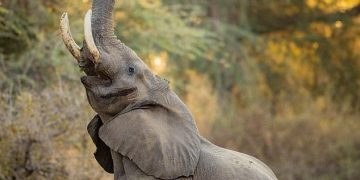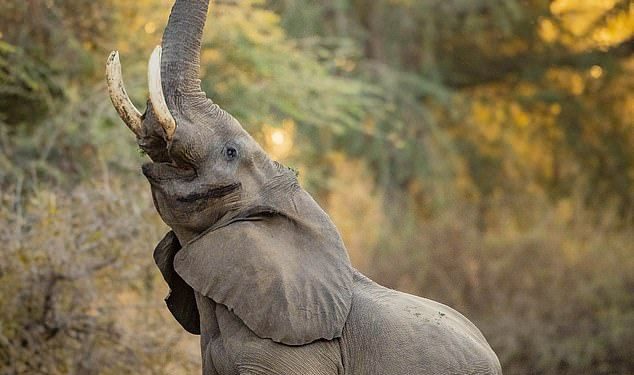Dr. Iziak Salako, Nigeria’s Minister of State for Environment, has announced his personal commitment to protecting Nigeria’s dwindling elephant population, which now numbers between 300 and 400. During the Nigeria Elephant Action Plan (NEAP) launch in Abuja on Tuesday, Salako revealed his decision to adopt an orphaned elephant as part of his efforts to aid the conservation of this critically endangered species.
Salako noted that the NEAP will significantly boost conservation efforts aimed at preserving the remaining elephants and maintaining biodiversity. He underscored the importance of elephants in supporting ecosystems and preserving ecological balance.
The country’s elephant population has dramatically decreased due to habitat loss, poaching, and human-wildlife conflicts, resulting in a 99 percent reduction in numbers.
Salako highlighted that the Nigerian government, in collaboration with the Elephant Protection Initiative Foundation and the Wildlife Conservation Society, plans to use the NEAP as a strategic framework for elephant protection and biodiversity conservation.
Andrew Dunn, Nigeria Country Director for the Wildlife Conservation Society and a key contributor to the NEAP, emphasized that conserving Nigeria’s remaining elephants will require more than just financial resources. He stressed the need for a shift in attitudes and a strong commitment from federal and state governments to address the interconnected issues of human well-being, global health, biodiversity loss, and climate change.
John Scanlon AO, CEO of the Elephant Protection Initiative Foundation, which supported the development of the NEAP, expressed cautious optimism about the plan, stating, “Nigeria’s elephants face a dire situation, but this plan provides a crucial opportunity for their conservation.”
The NEAP outlines a 10-year strategy from 2024 to 2034, including measures such as improved law enforcement, anti-poaching initiatives, modern monitoring technologies, and community engagement to ensure peaceful coexistence between humans and elephants.















